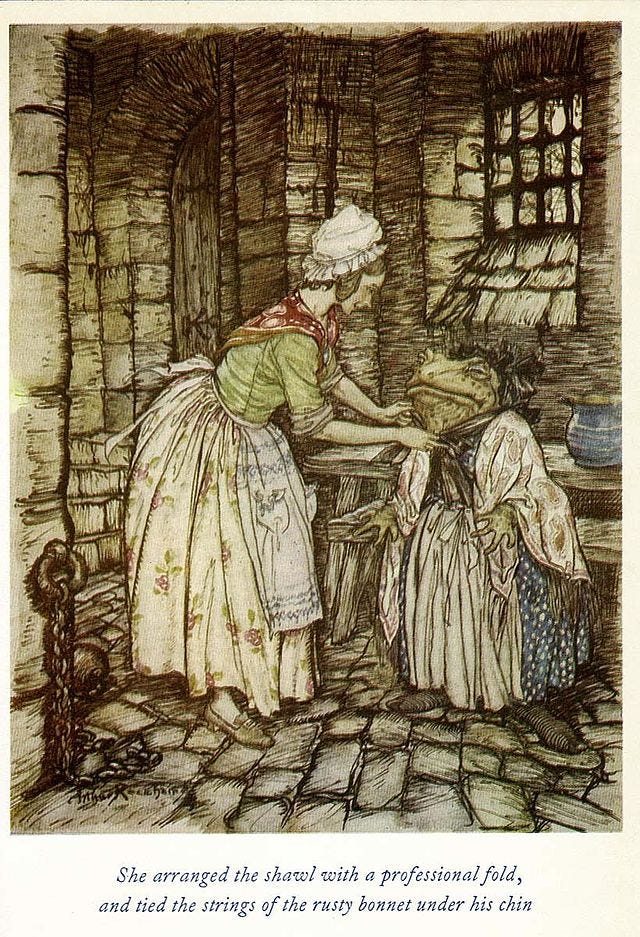First: I should note that there are to be two more installments to my series Reflections on Life and Mind, after which my readers will be mercifully delivered from its oddities, perversities, and sudden descents into scientific jargon. I have decided, however, that these articles would not really make for good reading over Christmastide—at least, not over its first six days or so (which, please remember, O you poor benighted souls who wickedly take down your trees before New Years’, is also known as Twelvetide because it is a duodecimal feast that ends on Twelfth Night, the 5th of January, which is the eve of Epiphany)—so I shall post them in a couple weeks’ time. In the meantime, I intend to post a special supplement of Q & A comprising somewhat more involved questions and answers than I usually record there, on just a handful of topics.
Second: In that Q & A posting, I shall be touching upon an aspect of The Wind in the Willows—to wit, the element of elegiac yearning in post-Edwardian pastoral, especially during and after the Great War—in an effort to cure a friend of what I take to be a catastrophic spiritual illness (that is, an inability to appreciate The Wind in the Willows, and “The Piper at the Gates of Dawn” chapter in particular). Moreover, sometime early in the new year I shall be posting my next installment of Music for a While, in this instance dedicated entirely to British composers of the last century or so. Quite by chance, a column I wrote a decade ago (or what will be a decade ago in a few weeks’ time) touches upon both these things, dealing as it does with two figures who died young in the Great War: the British composer George Butterworth (1885-1916), whose small body of compositions expresses that same elegiac yearning in a different key (so to speak), and Alain-Fournier (1886-1914), who was in some ways a French equivalent of Kenneth Grahame in a very, very different register. Hence I shall be republishing that piece a few days from now.
Third: I took a break some months back from recording conversations with friends and accomplices because I had a great deal that needed doing—journeying to the far side of the world and back, overseeing the editing of three books whose manuscripts I had sent in, preparing a large document for an elaborate project of which I am part, preparing some lectures for the spring, and so on—and very little time in which to get it all done. I shall, however, resume those conversations in 2024, ideally at some point early in the spring, or even late in the winter. How many I shall record I cannot say, since my friend Eugene McCarraher is contemplating starting a monthly podcast on which I will regularly appear, and some of the interviews conducted there might overlap with the conversations I would otherwise be seeking to record by myself. And, anyway, time is always short. Vita brevis, ars longa—which, by the way, does not mean that life is short while art endures, but rather that life is short and skilled accomplishment takes a very long time to cultivate (so no need to rebuke me for abusing the citation)... And, yes, it is traditionally written the other way around—ars longa, vita brevis—but the original Greek from which the Latin comes is ὁ βίος βραχύς, ἡ δὲ τέχνη μακρή... (but I may be getting off track here).





The life so short, the craft so long to learn, as Chaucer renders it
Do have a wonderful Christmas Dr. Hart.